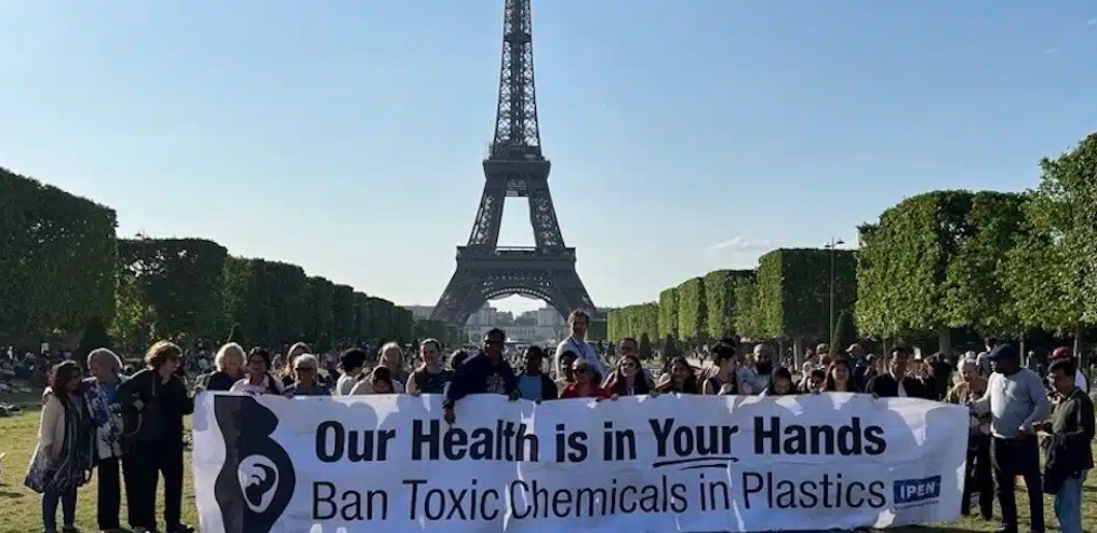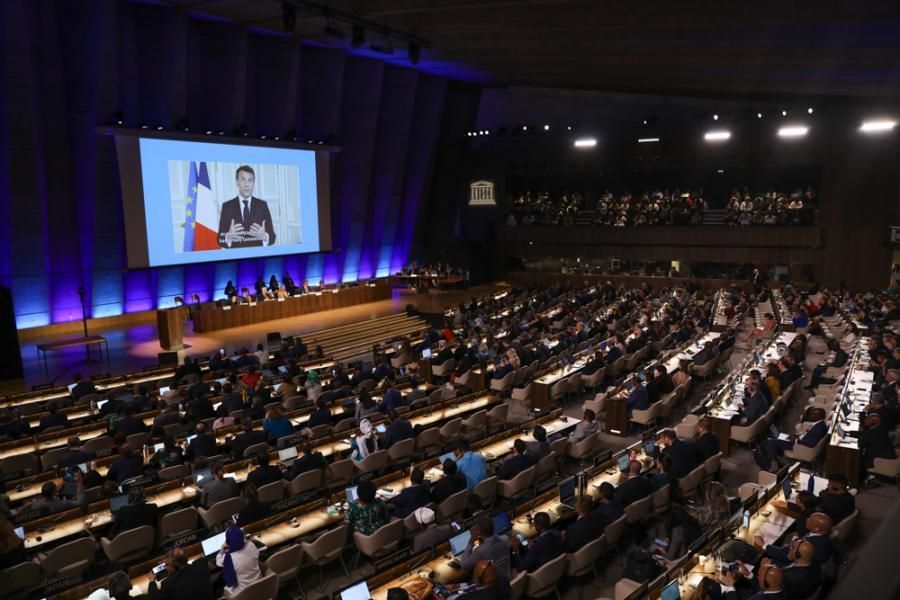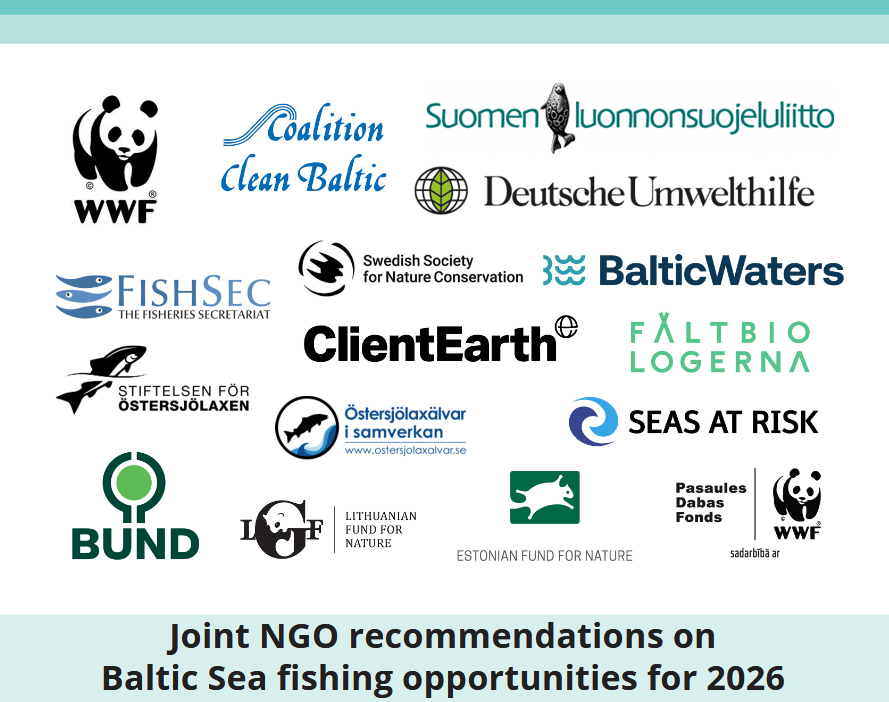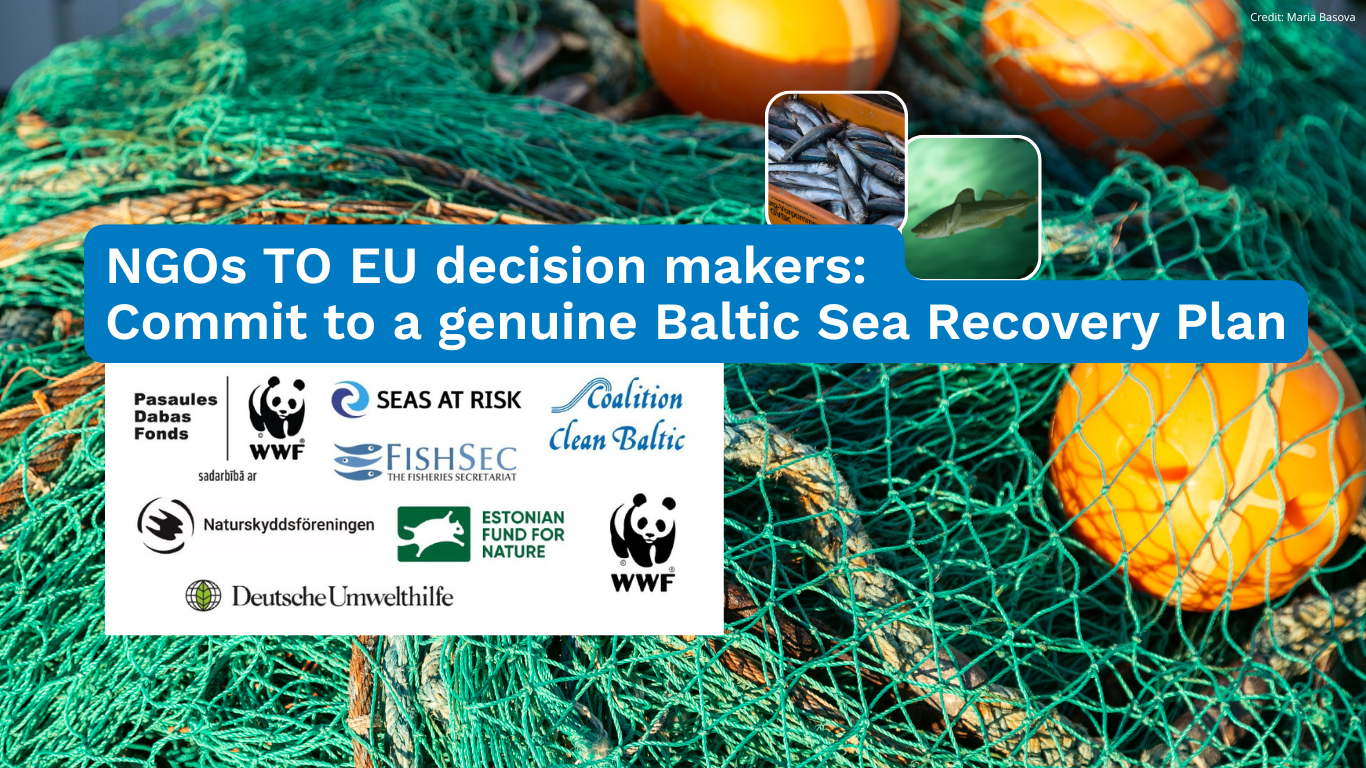Coalition Clean Baltic took part in the second session of the Intergovernmental Negotiating Committee to develop a Plastics Treaty

Credit: IPEN
June 2023 - The second session of the Intergovernmental Negotiating Committee to develop an international legally binding instrument on plastic pollution, including the marine environment (INC-2), took place in Paris on 29 May - 3 June 2023. The INC Chair, with the support of the Secretariat, received a mandate to prepare a "zero draft" of the agreement ahead of the next session, due to take place in Nairobi, Kenya, in November 2023.
Representatives of Coalition Clean Baltic, and some of its Member Organizations, such as the Swedish Society for Nature Conservation attended the INC-2. In total, more than 1,700 participants - over 700 Member State delegates from 169 Member States and over 900 observers from civil society groups, including environmental NGOs and scientists – took part in the session, hosted by France at the headquarters of the UN Educational, Scientific and Cultural Organisation (UNESCO) in Paris. This second session follows the INC-1, which was held in Punta del Este, Uruguay, in November 2022.
As the Plastic Treaty INC-2 negotiations come to a close, it was observed that many delegates’ views are evolving, as the talks have advanced from a focus on plastic as a waste and pollution problem, to the current movement toward a Treaty that addresses the threats to health and biodiversity from chemicals throughout the plastics life cycle. Despite roadblocks at the beginning of the week from a small group of countries, progress during the INC-2, including a decision to develop an initial draft text of a Treaty, has set the stage for the upcoming work and the next INC meeting in Kenya later this year toward a Treaty that addresses chemicals and health[1].

Credit: IISD - 29 May 2023
Initially, progress at INC-2 was slowed by a small group of countries reliant on their major fossil fuel, plastics, and chemical industries. However, despite these expected delays, the vast majority of Parties have expressed views showing the urgency of a Treaty centered on eliminating hazardous chemicals that threaten human health and the environment and on a lifecycle approach. For example, the High Ambition Coalition, a group of nearly 60 countries, including all Baltic Sea countries, except of Russia, allied for a meaningful treaty, stating:
(We) underline the scientific evidence of adverse health impacts related to plastics throughout the lifecycle, especially for women, infants and young children; workers and residents of frontline communities exposed to toxic chemicals used in or generated as a byproduct from the manufacturing of plastics; and those exposed to toxic chemicals further down the lifecycle of plastics, through use of plastic products and in the management of plastic waste, including waste pickers and waste recyclers[2][3].
The issue of toxic chemicals in plastics is becoming more and more important during the negotiations, and around. Thus, the new Greenpeace/IPEN report, "Forever Toxic: The science of health threats from plastic recycling,"[4] notes that, according to UNEP, plastics contain more than 13,000 chemicals, with more than 3,200 of them[5] known to be hazardous to human health. Moreover, many of the other chemicals in plastics have never been assessed and may also be toxic. Recycled plastics often contain higher levels of chemicals that can poison people and contaminate communities, including toxic flame retardants, benzene and other carcinogens, environmental pollutants like brominated and chlorinated dioxins, and numerous endocrine disruptors that can cause changes to the body’s natural hormone levels.
"The situation with constantly increasing plastic production, and associated pollution of the environment and impact on public health, and climate is extremely worrying. We at CCB together with our colleagues all around the world support the idea of a global control for chemicals in plastics, and limits for plastic production as important elements of the future treaty", commented Eugeniy Lobanov, CCB Hazardous Substances Working Area Leader, and participant of the INC-2.
CCB will continue its participation and its contribution to the development of such an important Plastics Treaty for present and future generations.
***
Article written by Eugeniy Lobanov, CCB Hazardous Substances Working Area Leader
EXTRA RESOURCES
- IISD Summary report on INC-2, Earth Negotiating Bulletin, 2023
- UNEP resource page for INC-2, UNEP 2023
- IPEN resources on Plastic, IPEN 2023
- CCB Report "Keep Fibers Zipped. Holistic approach to reduction of microfiber pollution from textile", 2023
- CCB Keep FIbers Zipped campaign, 2023
NOTES
[1]
https://stoppoisonplastic.org/blog/chemical-threats-to-health-and-biodiversity-taking-center-stage-in-plastics-treaty-talks/
[2] Landrigan PJ, Raps H, Cropper M, Bald C, Brunner M, Canonizado EM, et al.. The Minderoo-Monaco Commission on Plastics and Human Health. Annals of Global Health. 2023;89(1):23. DOI: http://doi.org/10.5334/aogh.4056
[3] Symeonides, C, Brunner M, Mulders Y, et al. Buy-now-pay-later: Hazards to human and planetary health from plastics production, use and waste.Journal of Paediatrics and Child Health. 2021, vol 57. DOI: 10.1111/jpc.15777
[4] https://www.greenpeace.org/usa/reports/forever-toxic/
[5] https://www.unep.org/resources/report/chemicals-plastics-technical-report

